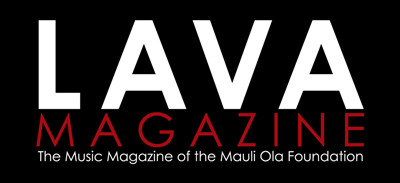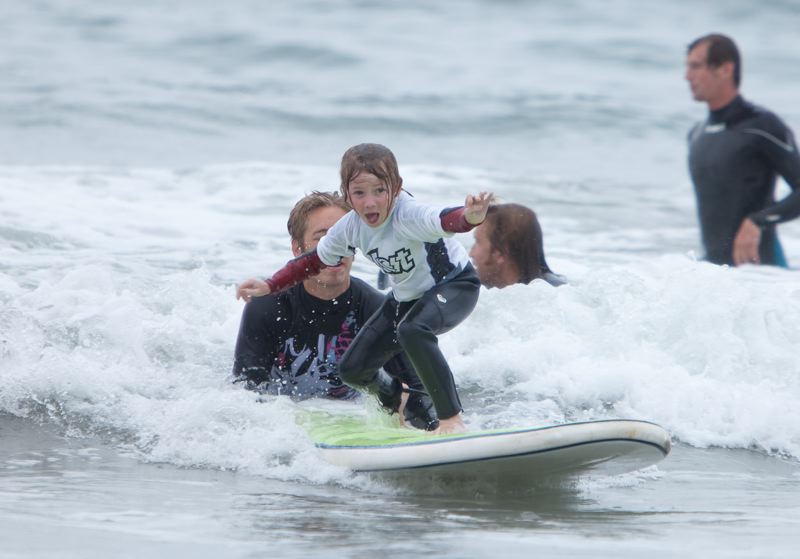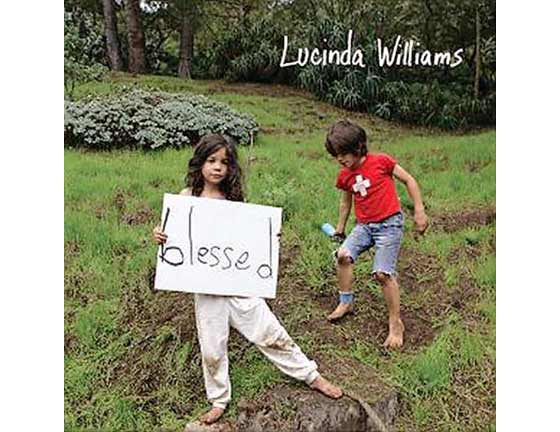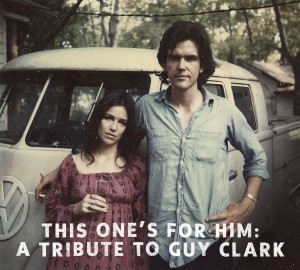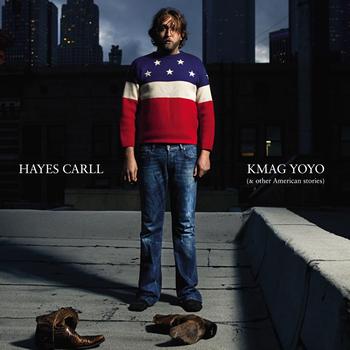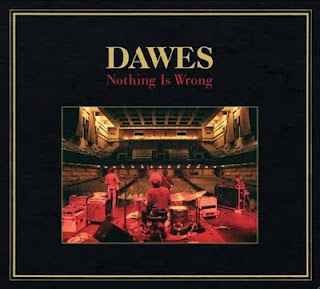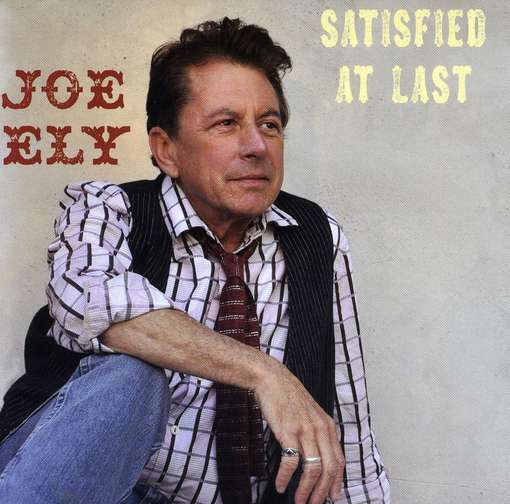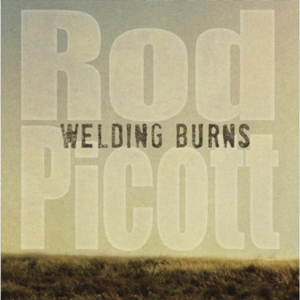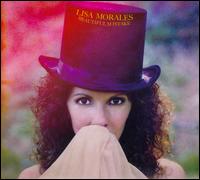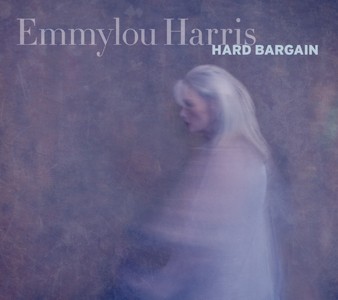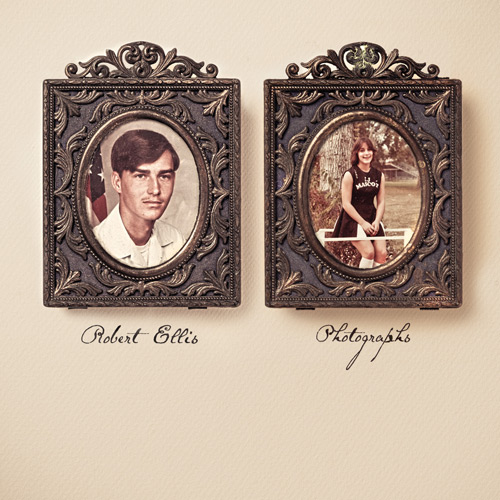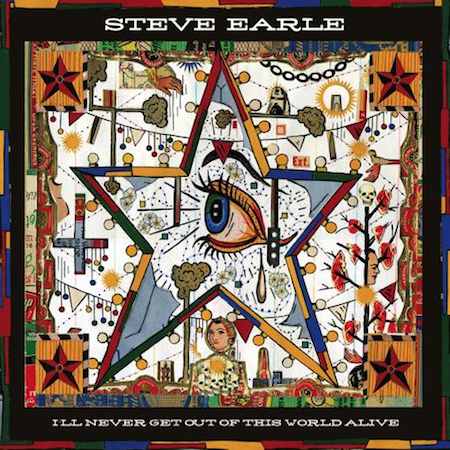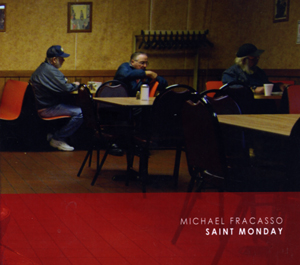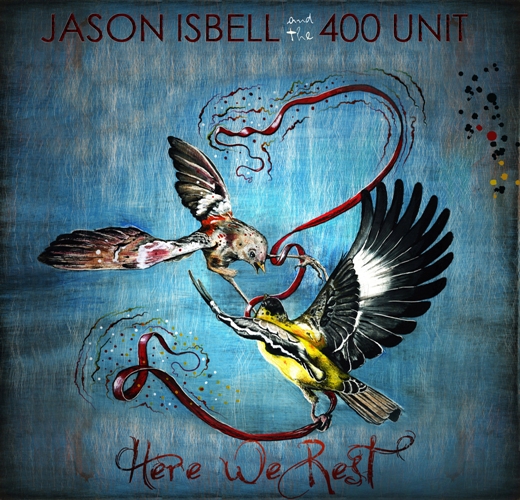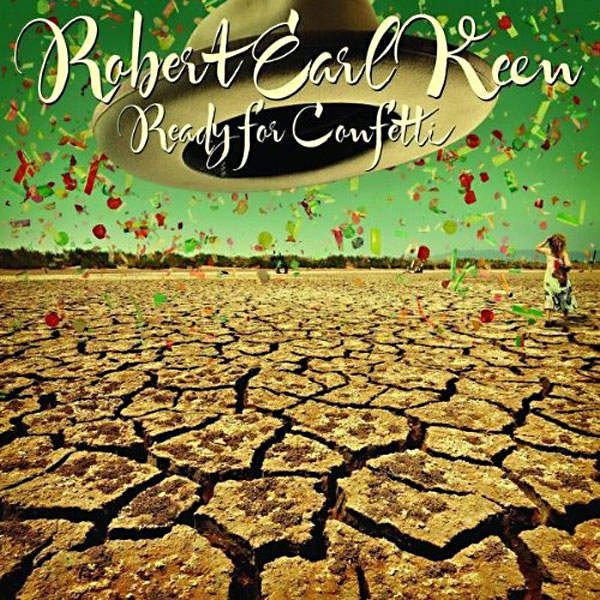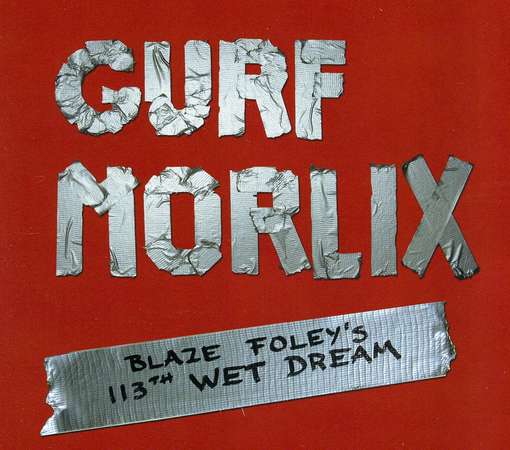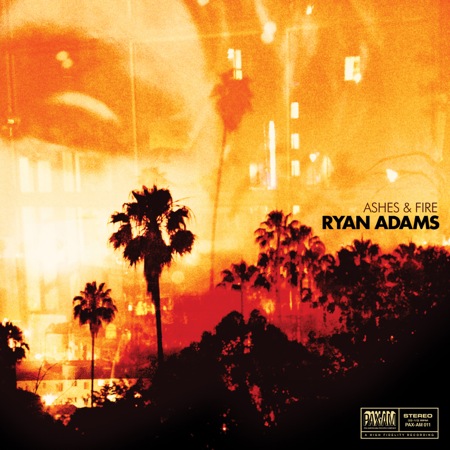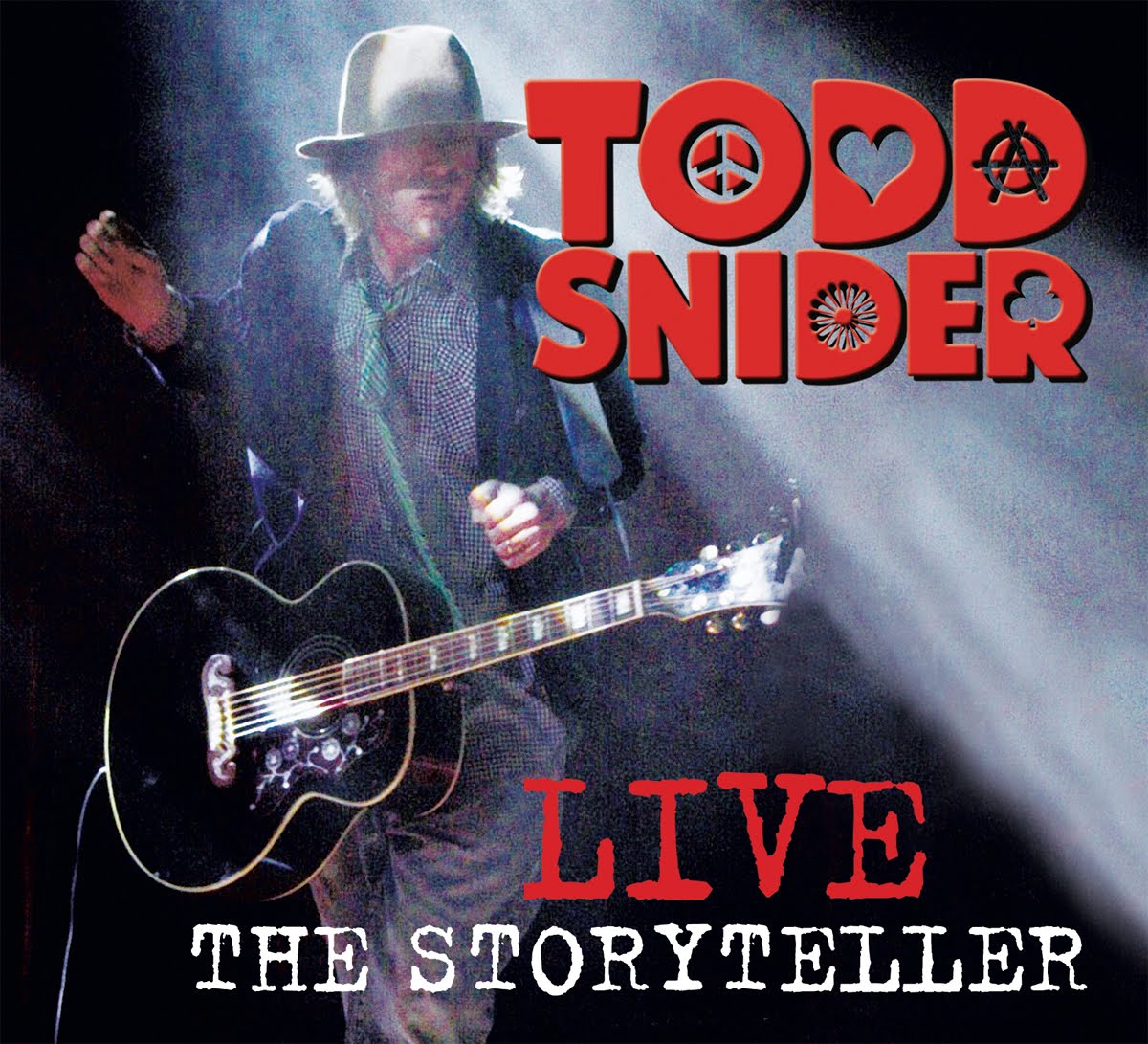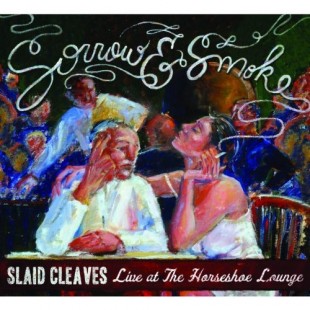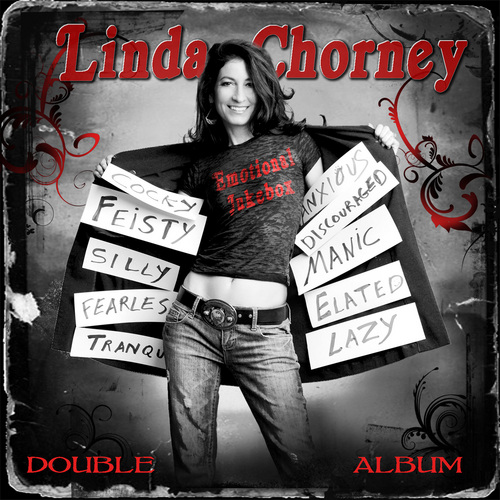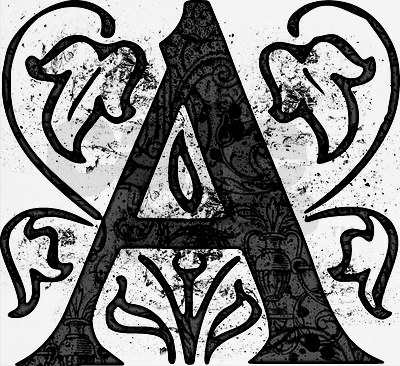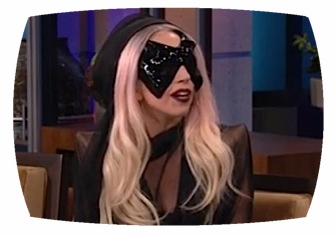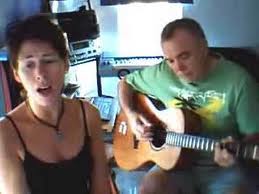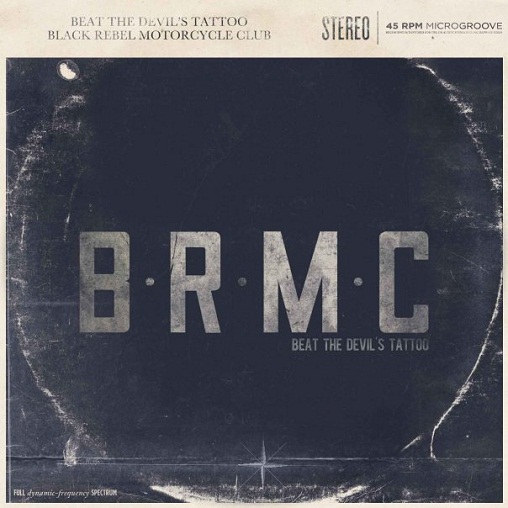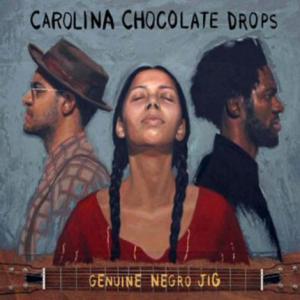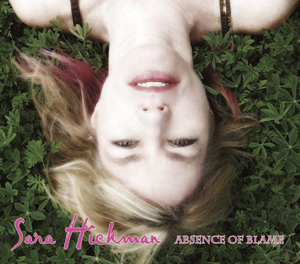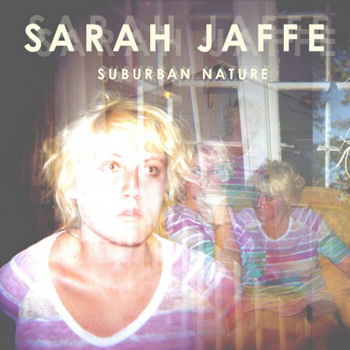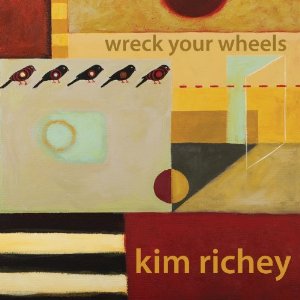The Highway Kind: Spotlight on Americana
By Richard Skanse
 Photo: Gregg Delman
Photo: Gregg Delman
31 FLAVORS OF THE BEST IN AMERICANA FROM 2010
First, a disclaimer: This list, more so even than most of its kind, is going to be highly subjective. Debate-sparking picks and temper-baiting omissions are to be expected with any “best-of” album roundup, but playing the game with the Americana genre adds a whole ’nother level of contentious fun to the mix. That’s because Americana, as befits its name, isn’t a clearly defined genre unto itself so much as it is a melting pot of many; a musical mutt, if you will. The airplay chart compiled by the Americana Music Association bares this out, having featured albums this year by not only the expected array of rootsy troubadours like John Prine and Darrel Scott, but also mainstream country acts (Dierks Bentley), gospel greats (Mavis Staples), pioneering rock ’n’ rollers (Jerry Lee Lewis) and platinum-selling household names (Tom Petty & the Heartbreakers). And don’t forget Robert Plant, who in 2010 stood at the top of the roots-music hill with a presence as commanding as the cocksure “golden god” of his hard-rock youth.
Old Percy’s not a newbie to these parts. His new Band of Joy is the follow-up to 2007’s Raising Sand, his Grammy-winning [Album of the Year, no less] collaboration with bluegrass siren Alison Krauss. But as much as the Krauss and Plant pairing might have invited lazy “she’s a little bit country, he’s a little bit rock ’n’ roll” quips, the fact is, Plant’s Americana roots can be traced all the way back to at least Led Zeppelin III. Had radio been as segmented in 1970 as it is today to warrant a separate Americana chart, rootsy, acoustic fare like “That’s the Way,” “Tangerine” and even “Bron-Y-Aur Stomp” might have found that transitional third album by the biggest rock band of the decade (if not ever) filed under “alt-country” — right alongside the likes of the Bob Dylan’s New Morning, the Band’s Stage Fright, Neil Young’s After the Gold Rush, the Flying Burrito Brothers’ Burrito Deluxe and the Byrds’ Untitled.
All of that’s just an admittedly very long-winded way of saying that, come time or notion to list the best (and/or most notable) Americana albums of the year, just about anything goes. And that goes not just in regards to what artists I’m including under the Americana umbrella (step inside, Los Lobos, and say hello to Charlie Musselwhite and Merle Haggard), but also my ranking of certified legends (Willie Nelson) right alongside up-and-coming “who-dats?” (like Kathleen Taylor) whose praises I feel compelled to shout about from rooftops. Off the top of my head, I can think of at least a handful of other Americana-ish albums from the past year that aren’t listed here — some of which I just never got my hands on. Just the same, though, I stand by this list of my favorites, all 31 of them. These aren’t records I’m supposed to like as a critic. These are records I like, period — and in many cases love — because they provided the soundtrack to my 2010. Or at least they did when I wasn’t banging my head to Iron Maiden’s prog-metal masterpiece The Final Frontier, delighting in the whimsical, Tom Leher-meets-Doris Day genius of Nellie McKay’s Home Sweet Mobile Home, or trying to keep up with the furious, off-the-charts insanity of $O$, by South African rave-rappers Die Antwoord. Because no music lover worth his or her ears should live by one genre alone — even one as wide-open as this one.
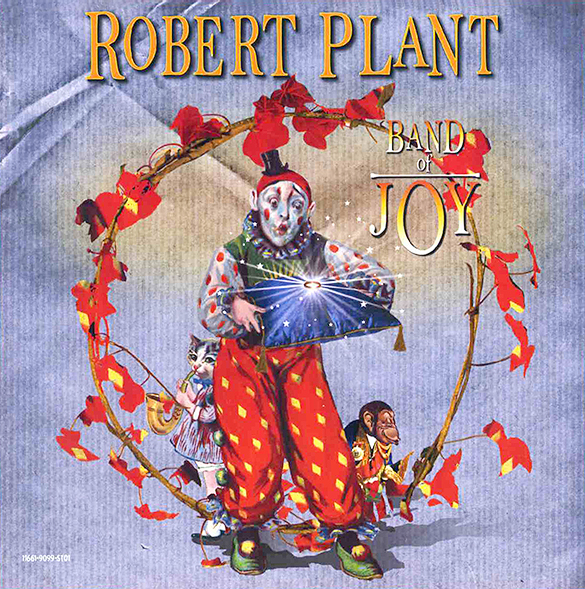
Robert Plant
Band of Joy
Rounder
Though closer in spirit to the languid, “Tangerine” tranquility of Raising Sand than the Technicolor storm of 1990’s Manic Nirvana (to these ears, still the man’s finest post-Zeppelin hour on record), Robert Plant’s Band of Joy nonetheless proves this classic-rock warhorse still has plenty of kick in him. Calling the album rock ’n’ roll would be a stretch, but Plant and producer/guitarist Buddy Miller, named “Instrumentalist of the Year” at September’s Americana Music Awards, charge this set (named after Plant’s pre-Zep Summer of Love band) with a bracing kinetic energy that sparks and sizzles from the Moroccan/Latin swirl of the opening Los Lobos cover (“Angel Dance”) through to to the skittish, jagged-edged beat of the closer, “Even This Shall Pass Away.” Although there’s only one original here (the Plant and Miller-penned “Central Two-O-Nine”), Plant inhabits every song as naturally a second skin, be it the mysterious “Silver Rider” (by indie rockers Low), Richard Thompson’s “House of Cards,” or the traditional “Satan, Your Kingdom Must Come Down.” It’s all very, very good; but the two real highlights — a previously unrecorded Townes Van Zandt beauty called “Harm’s Swift Way” and the shimmering “The Only Sound that Matters,” by Gregory Vanderpool of the Austin, Texas, band Milton Mapes — outshine the very fine Raising Sand at its best and stand tall beside anything else Plant’s ever recorded.
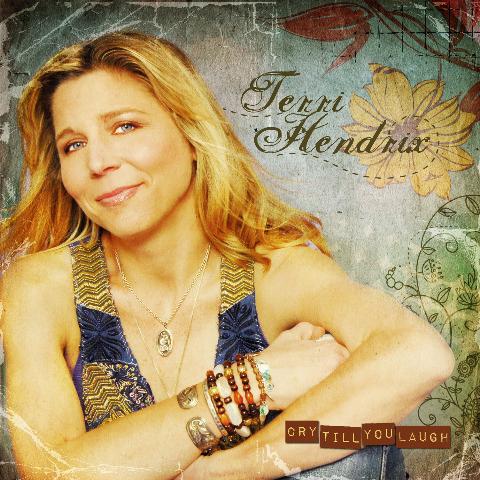
Terri Hendrix
Cry Till You Laugh
Wilory
Talk about truth in advertising. Not only does Cry Till You Laugh mark an artistic high-water mark for the prolific Terri Hendrix (this is her 14th release in as many years), it’s also her most emotionally fearless and forthcoming. The opening “Wail Theory,” an inspired mash-up of two Dorothy Parker poems sung a cappella and punctuated with shots of thick, mournful harp, is the darkest this more famously sunny Texan has ever sounded on record — at least until the haunting, surrealistic fever dream of “The Berlin Wall” eight songs later. In between, “Hand Me Down Blues,” “Roll On,” “Einstein’s Brain” and “Sometimes” all reveal varying degrees of sadness, frustration and uncertainty with disarming frankness. But through it all, Hendrix’s stylistic diversity shines like a beacon, as even her blues come in a sweeping array of folk, country, pop and jazz colors. Meanwhile, proving once again that few other artists in the wide world of Americana music are more adept at the art of making you feel good, she delivers on the “laugh” part of the equation in spades. From the explosive positive energy that radiates from “Slow Down,” “Hula Mary” and the pair of up-tempo jazz tunes (especially the scat-tacular “Take Me Places”) to the stirring affirmation of the beautiful “Come Tomorrow,” Hendrix’s hard-earned, invigorating joie de vivre spirit hits you like a B-12 shot straight to the dimples.
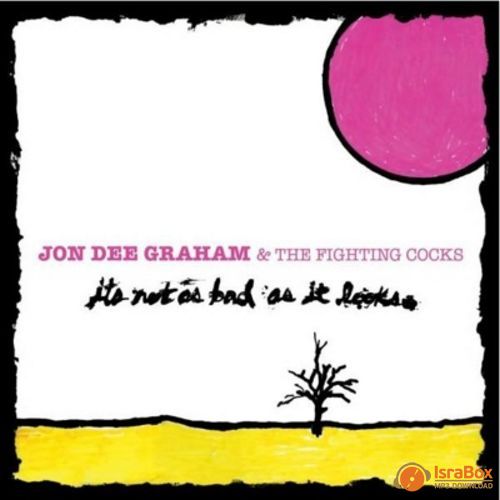
Jon Dee Graham & the Fighting Cocks
It’s Not as Bad as It Looks
Freedom
His old bandmate Alejandro Escovedo garnered far more media coverage with his own 2010 release (Street Songs of Love), but Jon Dee Graham’s It’s Not as Bad as It Looks was the year’s first and best album by a veteran of Austin’s late, great True Believers. Named after Graham’s quip to the first responder on the scene of his ugly one-car accident that absolutely was as bad as it (and he) looked, the record plays like a determined prize fighter stumbling to his feet after a near-knockout and fighting his way tooth and nail back to victory. Graham’s guitar and vocals have always had a ragged-glory quality; he doesn’t play or sing so much as rip notes from his instrument and throat with a primal-instinct ferocity. That intensity is on full display from one end of the album to the other, pushing anthems like “Beautifully Broken,” “I Said” and “My Lucky Day” beyond the red and into a whole new zone of visceral thrills. But even quieter songs, like “Burning Off the Cane” and the unabashedly tender “Best,” are cut with a jagged edge — evidence that every note and word here, from the terrifying to the beautiful, was born the hard way.
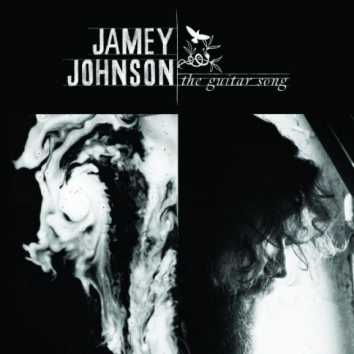
Jamey Johnson
The Guitar Song
Mercury/Nashville
As inclusive as Americana radio can be, it’s also prone to some glaring omissions. Jamey Johnson’s The Guitar Song debuted at No. 1 on Billboard’s Top Country Albums chart, but it didn’t even crack the official Americana chart’s year-end Top 100. Naturally, you don’t expect to find every mainstream country act embraced by the more “alt-country” crowd, but nobody with their ears wired right could ever mistake Alabama’s Johnson for Kenny Chesney or Rascal Flatts. In fact, to find his equal on country radio, you’d have to travel clear back to the mid-70s commercial heyday of Waylon Jennings and Willie Nelson. And unlike many a wannabe country outlaw from his own generation (including Waylon’s own son, Shooter), Johnson doesn’t just try to play the part; he actually raises the bar. The Guitar Song, the former Marine’s third release, is a 25-song collection that sprawls across two shockingly filler-free discs. Johnson wrote or co-wrote most of the songs, with the remainder borrowed from the esteemed likes of Kris Kristofferson (“For the Good Times”), Hank Cochran (“Set ’Em Up Joe”), Mel Tillis (“Mental Revenge”) and Keith Whitley (“Lonely at the Top”). Most impressive of all, there’s not a dud in the bunch. But as solid as the material is — and there’s enough top-shelf stuff here for an instant greatest hits set — it’s the performances across The Guitar Song that really resonate. Johnson’s deep, authoritative drawl rumbles like a Mack truck in low gear, and the playing (by Johnson’s own road band rather than Nashville session cats) is as white-hot as any jam band this side of the Allmans. Industry doomsayers may insist that the album format is dead, but long after Johnson’s label stops pulling singles off this beast (I’m guessing early to mid 2012), The Guitar Song will still be regarded as a bona fide classic.
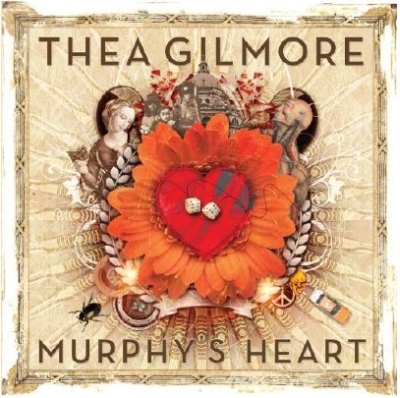
Thea Gilmore
Murphy’s Heart
Fullfill LLC
If Thea Gilmore isn’t the most British-sounding British singer-songwriter to come along since Ray Davies, she certainly isn’t too far down that list from Richard Thompson. On her outstanding 11th album, Murphy’s Heart, the 31-year-old Oxford native proves once again that A-grade Americana music needn’t always have an American accent — and it most definitely doesn’t have to sound old-timey and creaky, either. Gilmore’s rich, dusky voice sounds marvelous draped around the Leonard-Cohen-worthy melancholy of “Automatic Blue” (“Let’s raise a toast to ragged ghosts and loneliness in song …”), but her true mettle is showcased on edgier mid-tempo fare like the skittering, sinister “This Town,” the sly and sassy “Jazz Hands” and the knowingly wicked “Teach Me to Be Bad.” That said, she’s not too shabby with a big, shiny hook, either, as demonstrated here with the irresistibly catchy “You’re the Radio.”
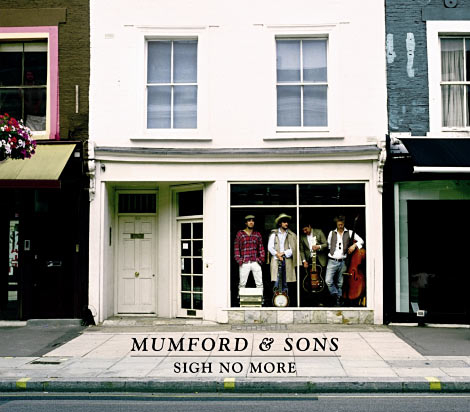
Mumford & Sons
Sigh No More
Glassnote
Like Thea Gilmore, the four young men comprising London’s Mumford & Sons drink deep from both English and North American folk traditions (and more than a little classic and indie rock, too) to intoxicating effect. There’s a sense of sleeping-giant power to the band’s tremendously engaging full-length debut that’s strongly reminiscent of Led Zeppelin III — and fans of the Waterboys, Nick Drake, Harvest-time Neil Young, Jeff Buckley, the Swell Season and the Arcade Fire will find plenty to savor here, too. The instrumentation (rife with acoustic guitars, mandolins, banjo, dobro, accordion and even occasional brass) is impeccable, but it’s the swooping and soaring melodies that really launch Sigh No More into the upper tier of the year’s best albums. Songs like “Winter Winds,” “White Blank Page” and “Little Lion Man” will stir up parts of your soul you forgot were even there — and then they’ll make you want to sway and sing along with Mumford & Sons at the top of your lungs at dangerously high altitudes.

Kasey Chambers
Little Bird
Liberation Music
Riding a wave of well-deserved critical and peer acclaim for her remarkable 2000 debut, The Captain, Australian songbird Kasey Chambers was very much the “It Girl” of Americana at the start of the decade. All of her releases since have been solid, but there’s just something about the new Little Bird that makes it seem like her finest record since that nearly flawless debut. Her voice remains as fetching as ever (think quirky ’60s/’70s pop-folk artist Melanie Safka, rocking both a heavy Aussie accent and a shot of twang), and her melodies are relentlessly catchy without every quite tripping the cloy-o-meter. The opening “Someone Like Me” and “Beautiful Mess” are as instantly appealing as anything on The Captain (no small feat), while the title track offers a satisfyingly older, wiser and much more self-assured spin on the insecurities she addressed so earnestly on her 2002 single, “Not Pretty Enough.” But maturity (and motherhood) hasn’t sapped a drop of fun out of her; if anything, her sense of hillbilly gypsy mischief is more pronounced than ever, especially on the banjo-driven “Georgia Brown” and the snarling rocker, “Down Here on Earth.” In fact, the only real knock against the album is that it has yet to be issued domestically in the States; it was briefly available on iTunes, but later pulled from the U.S. version of the store. Here’s hoping it finds a wider release in 2011, because this Little Bird is clearly ready to soar.
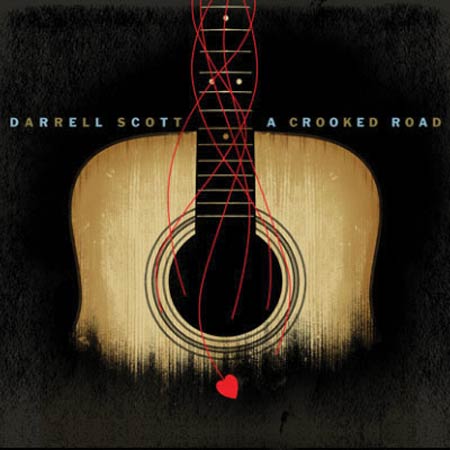
Darrell Scott
A Crooked Road
Full Light
A songwriter’s songwriter who’s had no small amount of success in landing cuts on mainstream country albums (Dixie Chicks, Garth Brooks, Brad Paisley, etc.), Darrell Scott is also an in-demand session and touring multi-instrumentalist whose most recent credits include Robert Plant’s Band of Joy. He also records albums of his own, and as his latest and most ambitious proves, these are not casual castoff affairs. Spanning two discs and 20 songs (some of them shorter instrumental interludes), A Crooked Road can feel a little imposing at times, but there are more than enough passages of genuinely dizzying beauty to be found throughout the sprawl of it all to make each new listen rewarding. Scott played, sang and produced every note on the album — no small achievement — but it’s his songwriting that impresses the most. There’s an intellectual and emotional depth to Scott’s intensely introspective lyrics that makes them read, sans music, like choice passages from a great American novel; marry them to melodies as stirring as those in “A Father’s Song” and “The Open Door,” though, and their profundity increases tenfold.

Los Lobos
Tin Can Trust
Shout Factory!
If any one band comes close to covering the full scope (and potential) of the Americana genre, it’s this long-running wolf pack from East Los Angeles. Equal parts world-class rock ’n’ roll band, gritty rhythm ’n’ blues ensemble, Mexican folk preservation society and spirited avant-garde brigade, Los Lobos play American (North and South) roots music that can jump the tracks from traditional to out there on a dime. Tin Can Trust is far from the band’s most adventurous hour (that honor still belongs to 1992’s Kiko), but the mix of lively cumbias (“Yo Canto” and “Mujer Ingrata”) and meat-and-potatoes rockers (“Burn It Down” and the instrumental “Do the Murray”) with spacey blues (the aptly titled “Jupiter or the Moon” and the marvelous “27 Spanishes,” a peyote-spiked account of the Spanish conquest of Mexico) makes for a thoroughly satisfying trip. So does the seven-minute cover of the Grateful Dead’s “West L.A. Fadeaway,” a slow-jam groover shot through with some of the finest guitar work this gang of musicians’ musicians has ever captured on disc.
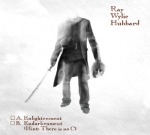
Ray Wylie Hubbard
A. Enlightenment, B. Endarkenment (Hint: There Is No C)
Bordello
Ray Wylie Hubbard’s days of being “the guy who wrote ‘Up Against the Wall (Redneck Mother)’” should be long behind him by now — along with intro sentences like this one linking him to the progressive/cosmic/outlaw Texas country scene of the ’70s. That stuff’s still part of his DNA, but he’s now two full artistic reincarnations past all that. After his first resurrection in the ’90s as a Rilke-quoting philosopher of song, he’s spent the last decade indulging a greasy, grimy, muddy blues kick. A. Enlightenment, B. Endarkenment (Hint: There Is No C) is his fourth release in this vein, but it’s also his most lively album in ages. Songs like “Tornado Ripe” and “The Four Horsemen of the Apocalypse” are still darkness incarnate, but “Pots and Pans,” “Whoop and Hollar” and “Down Home Country Blues” are celebrations of primal noise as full of hallelujah spirit as any Baptist hymnal.
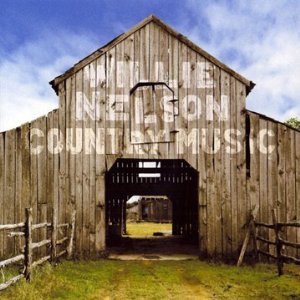
Willie Nelson
Country Music
Rounder
Although Willie Nelson is nothing if not prolific, you can count on one hand the really good and/or at least memorable albums he’s made in the last 30 years — and that’s being charitable. Hell, there’s a reason why you rarely, if ever, hear Willie change up his set list with a tune or two from whatever his latest-far-from-greatest release is, unless Toby Keith’s in the house expecting a walk on for “Beer for My Horses.” But Country Music is for sure one of the keepers — safe for filing alongside 1996’s Spirit (the last album to feature all Nelson originals), 2006’s You Don’t Know Me: The Songs of Cindy Walker, and ... I dunno, maybe last year’s Western swing tribute, Willie and the Wheel. True to it’s name, Country Music is a tribute, too, comprising 15 roots-music classics (not just country) casually rendered in the style of a no-pressure front-porch pickin’ session. Apart from the haunted hum of “Satan Your Kingdom Must Come Down” and the closing “Nobody’s Fault But Mine,” producer T Bone Burnett keeps the atmosphere-for-atmosphere’s-sake stuff to a minimum — a less-is-more approach that allows Willie plenty of room to just be Willie. You don’t have to be intimately acquainted with the original or most famous (earlier) versions of these songs to know these particular recordings aren’t necessarily definitive; but it’s such a treat to hear Nelson sing them all so comfortably — exactly as he’d play them just for himself on the back of his bus — that it’s hard to imagine the whole lot of them ever sounding more right.
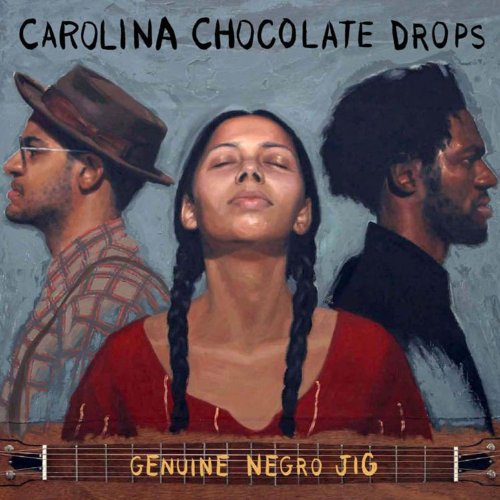
Carolina Chocolate Drops
Genuine Negro Jig
Nonesuch
Unless you’re an incurable junkie for all things yesteryear, the novelty charm of young artists playing the kind of “old-timey” music their grandparents’ parents might have danced to usually wears thin fast. But there’s just something about the sincerity — and joy — cooked into the Carolina Chocolate Drops’ Genuine Negro Jig that keeps it irresistible way past the usual expiration date on this kind of stuff. Five years after first meeting at a happening called the Black Banjo Gathering in North Carolina (who knew?), the trio of Rhiannon Giddens, Dom Flemons and Justin Robinson aren’t just the world’s most celebrated contemporary African American string/jug band — they’re one of the world’s most flat-out sensational string bands, period. Retro-fitting a modern hip-hop tune like Blu Cantrell’s “Hit ’Em Up Style” to fit so seamlessly next to a lively traditional called “Cornbread and Butterbeans” is plenty impressive. But chasing a chilling, a cappella Celtic lament (“Reynadine”) with a killer Tom Waits cover (“Trampled Rose”) and then upping the ante with a foot-stomping, barn-burning instrumental (“Memphis Shakedown”) propelled by a blow-the-roof off kazoo solo? That’s entertainment.
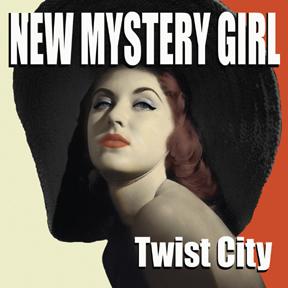
New Mystery Girl
Twist City
Ten Little Indians
The biggest mystery here is why a whip-smart singer-songwriter (Chrissy Flatt) with two fine albums under her belt but who’s still by no means a household name, even on her home turf (Austin, Texas), would choose to release her strongest record to date under an alias. Just chalk it up to art over ego. Flatt’s dozen new songs on Twist City snap and sizzle with a genuine rock ’n’ roll energy that’s as fun and feisty as the best pulp fiction. And therein lies the charm of her New Mystery Girl persona/project: You can tell Flatt and the rest of her band (anchored by guitarist Eric Hisaw and bassist/organ player Ron Flynt) are having an absolute blast. Flatt’s melodies are fresh and exciting, but there’s no hiding her love for such bygone heroes as Buddy Holly, Del Shannon and the Ronettes (“Drop Dead Gorgeous”), along with the Rolling Stones at the height of their mid-60s pop phase (“Dandelion Roars”). The retro dance party peaks with the second half’s title track and the rockabilly stomper “Sally’s Rumble,” but Flatt saves her best for last, riding out with a pair of exquisite, twilit ballads (“Gather All the Roses” and “Ocean & Moon”) that share a haunting, dream-like sense of, yes, mystery, that lingers in the air like thick blue smoke. “The party’s over,” Flatt sings on “Gather All the Roses.” “Hope you’ve enjoyed the show.” And how.
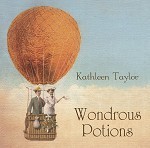
Kathleen Taylor
Wondrous Potions
www.kathleentaylormuisc.com
Artists like Gainesville, Fla.’s Kathleen Taylor — and for that matter, every other woman on this list so far — are testament to everything that’s right and wonderful about this modern DIY era, wherein truly original independent artists with enough get-up-and-go can share their music with the world without having to rely wholly or even in part on third party (i.e., record label) support. Like her aptly titled 2008 full-length debut, Defy the World, Taylor’s Wondrous Potions is a rapturously beguiling mix of precocious quirk, sweet naiveté and — just when your guard is down — cunning intelligence and a pinch of wicked menace. It’s all about as weird as a psychedelic trip through a Grimm’s Fairytale, but here’s what sets Taylor apart from the “freak folk” movement that’s made hipster-approved stars out of the likes of Joanna Newsom and Devendra Banhart: No matter how “out there” her muse takes her on songs like “Sing to Me” (part of which she seems to be singing in Oompa-Loompa) or the spooky “Snake Oil Man,” she never gives off even a hint of self-conscious misfitdom. Her sense of whimsy comes straight from the heart, and it’s as real and unaffected as the giddy passion she packs into lines like this little marvel: “Well I’m rough around the edges, you’re shiny as a pearl/and the space in between us is a magnetizing swirl.”
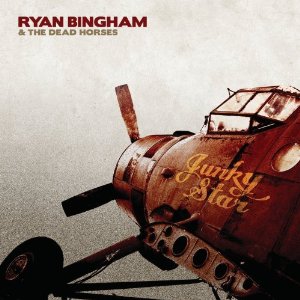
Ryan Bingham
Junky Star
Lost Highway
The Americana Music Association’s annual “Honors and Awards” show, held each September in Nashville, invariably favors the handful of acts and albums that generated the most AAA airplay or brought the most mainstream press attention to the genre. That made Ryan Bingham, the gravel-voiced singer-songwriter responsible for the Oscar and Golden Globe-winning Crazy Heart theme song “The Weary Kind,” a no-brainer for “Artist of the Year.” But Junky Star is kind of a harder sell. I’m inclined to blame producer T Bone Burnett, who helmed the Crazy Heart soundtrack, for smothering the boot-stomping, Stonesy mojo that characterized the best bits of Bingham’s first two major-label releases, 2007’s Mescalito and 2009’s Roadhouse Sun. A little more hustle in Bingham’s bustle would have gone a long ways here, because taken as a whole, Junky Star is a drag on first impression: Call it “The Dreary Kind,” as songs like “The Poet,” “Self-Righteous Wall” and the title track are all exercises in Zen patience. But that patience pays off. The trick is slowly digesting the songs one at a time, on repeat, until they finally creep up on you and grab you by the throat. “Hallelujah,” a murder victim’s lament from limbo, is without question the most lethal of the lot, but Junky Star ultimately proves to be full of such sleeper keepers. It’s a relentlessly moody, intensely atmospheric and frequently frustrating slow grower of an album, but undeniably compelling in its own ornery way.
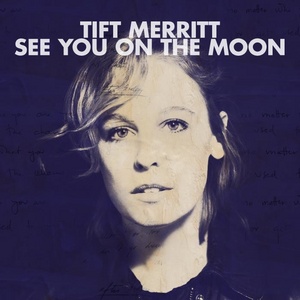
Tift Merritt
See You on the Moon
Fantasy
There’s a silvery, shimmering quality to Tift Merritt’s voice that invites favorable comparison to no less a paragon of Americana sophistication than Emmylou Harris — and an eloquence to her writing on the level of Nanci Griffith or Aimee Mann. Just one more album under her belt as end-to-end excellent as See You on the Moon (and 2008’s arguably even finer Another Country) though, and Merritt’s name really should warrant a yardstick of its own. The opening “Mixtape” was the focus track here, and with good reason: It’s a sexy, soulful stunner with a groove that’s as hipster friendly as anything by say, Spoon, but distinguished by an earnest, heart-on-sleeve (or rather, tape) urgency that could never be mistaken for detached cool. “So much rock ’n’ roll love in a plastic case,” she promises, “play it loud and see my face.” Honestly, See You on the Moon never gets better than that, but subsequent highlights like “Engine to Turn,” “Papercut” and even her gorgeously sung cover of Kenny Loggins’ “Danny’s Song” all come close enough to warrant many rewarding returns.
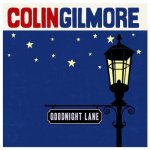
Colin Gilmore
Goodnight Lane
www.colingilmore.com
Colin Gilmore — no relation that I know of to the Thea on this list, but the son of Lubbock legend Jimmie Dale Gilmore, of the Flatlanders fame — packs more hooks per song on this jewel of a record than maybe any other Texan since Buddy Holly. There’s just no overstating how relentlessly catchy — and smart — his writing is all the way through Goodnight Lane. There’s really no filler here, but if you’re the overly cautious, download-one-song-at-a-time type, start with the deliriously good “Circles in the Yard,” follow it with it the even better title track, then “Hand Close to Mine,” “Abigail,” “Black Vines,” etc. — until you’ve bought the whole damn thing. Which you undoubtedly will, because Gilmore’s barrage of perfect pop harmonies (with just enough true grit to keep it all pleasingly rootsy) never lets up for a second.
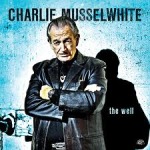
Charlie Musselwhite
The Well
Alligator
The formidable blues harp that has made Charlie Musselwhite a legend in his own time is still a force to be reckoned with, but it’s the man’s songwriting chops that really pack the knockout blow on the Grammy-nominated The Well. The title track is especially winning; you just don’t find too many blues songs with a heart of pure gold. At the other end of spectrum is the spectacularly wicked “Hoodoo Queen,” in which Dr. John dances with the bones of voodoo priestess Marie Laveau, and the intensely moving, Mavis Staples-enhanced “Sad and Beautiful World,” about the tragic murder of Musselwhite’s own mother. This is one deep, deep Well you won’t want to climb out of anytime soon.
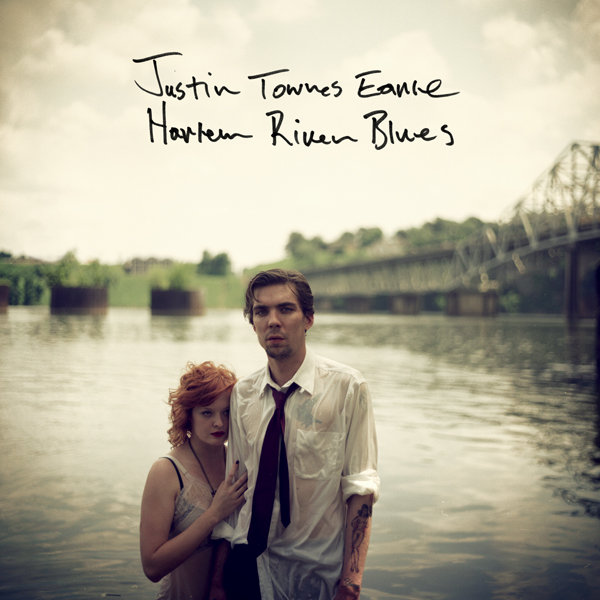
Justin Townes Earle
Harlem River Blues
Bloodshot
When Justin Townes Earle sings “I’m the son of a railroad man … This ain’t my daddy’s train,” on “Workin’ for the MTA,” he’s channeling the voice of a New York City subway worker. But the same line could just as well be a comment on how Earle — son of famed maverick singer-songwriter Steve — has by now established that he’s got a musical track of his own to follow. His terrific third album, Harlem River Blues, clocks in at just over half-an-hour, and he makes every minute count. The exquisite “One More Night in Brooklyn” and “Learning to Cry” are the melodic standouts, and that MTA song would make Woody Guthrie proud, but the album’s biggest stunner may be the disarmingly peppy title track. Who knew suicide and gospel music could be married with such zesty results?

Kevin Welch
A Patch of Blue Sky
Music Road
Kevin Welch is not a throw-stuff-at-the-walls-and-see-what-sticks kind of songwriter. Even when he opens A Patch of Blue Sky with the bracing “Come a Rain,” a teasing hint of casual cool reminiscent of fellow Oklahoman J.J. Cale, there’s still no mistaking observations like “Jesus was a pagan, Woody was a punk/Gandhi was a solider, Hendrix was a monk,” for offhanded stream-of-consciousness. In fact, there’s so much meticulous attention to detail apparent in every line and word here that it might come off as overly fussy or clinical if not for Welch’s innate poetic grace (not to mention his rich, calming voice). Some of these songs are carried on more memorable melodies (“The Great Emancipation,” “Andaman Sea,” “New Widow’s Dream”) than others, but there’s a calming air of Zen wisdom to all of them that makes A Patch of Blue Sky play out like a steady stream of sprit-cleansing epiphanies.
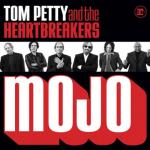
Tom Petty & the Heartbreakers
Mojo
Reprise/Wea
Though light on genuinely great songs up to Tom Petty’s usual standards (the gut-wrenchingly lovely “Something Good Coming” being a very notable exception), Mojo is nonetheless a stone-cold killer of a rock ’n’ blues record. The meandering “First Flash of Freedom” is a drag and a half, but what matters most when all is said and done is that “I Should’ve Known It” hits harder and meaner than vintage Mike Tyson. That one monster stomper and “Something Good Coming” alone are absolutely worth the price of admission. As for the rest of Mojo, you can fuss over the dearth of memorable melodies (as I certainly did in my original review of the album on this same website), or you can follow Petty’s own recipe for a good time: “Let Yourself Go,” let the peerless Mike Campbell (lead guitar) take the wheel, and enjoy the ride.
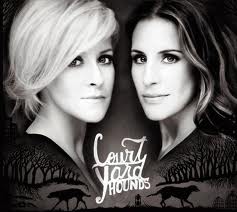
Court Yard Hounds
Court Yard Hounds
Columbia
Sisters Emily Robison and Martie Maguire channel all of the hooks, harmonies and high-flying instrumental chops of their “other” band (the Dixie Chicks) into their side project’s self-titled debut, with banjo/dobro player Robison stepping up as a confident lead vocalist reminiscent of Chicks pal Sheryl Crow. At its best (the ebullient “The Coast,” the Jakob Dylan duet “See You in the Spring,” the McCartney-esque “April’s Love” and the achingly wistful “Fear of Wasted Time”), Court Yard Hounds comes mighty close to matching the Dixie Chicks’ highlight reel. That said, though, such comparisons to the mothership don’t do this spinoff a whole lot of favors, because they only draw attention to the missing X-factor that put the Chicks on top of the world in the first place: lead singer Natalie Maines’ arena-filling pipes and irreverent sass and spark. Two Dixie Chicks are certainly better than none, and CYH is certainly a welcome place-holder to tide fans over and keep the creative wheels greased — but here’s hoping the full trio is back in action before too long.
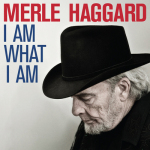
Merle Haggard
I Am What I Am
Hag/Vanguard
Is there any living American music legend more taken for granted these days than Merle Haggard? Nearly five full decades after his earliest recordings in the ’60s, the barroom poet of Bakersfield is still writing songs (hell, whole damn albums full of ’em) every bit as good as “Big City,” “Fightin’ Side of Me” and even “Mama Tried.” There may have been a few (very few) arguably better over-all country albums in 2010 than I Am What I Am, but certainly no one country song better than the opening track, “I’ve Seen It Go Away.” It’s a song about Haggard’s beloved country music, a song about his country, a song about high hopes and human achievement and broken dreams and wasted potential. All in three minutes flat. The rest of the songs here aren’t too shabby, either, especially the closing title track. And speaking of that title — you also gotta give Haggard bonus points for having the cheek to swipe it from the landmark 1980 album (featuring “He Stopped Loving Her Today”) by his old buddy George Jones. Call it a devilish tip of the hat from one old country badass to another.

Alejandro Escovedo
Street Songs of Love
Fantasy
Confession: I’ve had a bug up my ass about this record since it came out. As a great admirer of Alejandro Escovedo’s music since his 1993 debut, Gravity, I cheered his long-overdue “breakout” (outside of No Depression and Texas circles, at least) with 2008’s truly tremendous Real Animal. But I put on my cranky pants and called B.S. when this not-half-as-excellent follow-up seemed to receive even more rapturous praise, especially when much of that attention was lavished on arguably the weakest rocker Escovedo’s ever penned (“Faith”) just because it was recorded as a duet with Bruce Springsteen (whose management team recently adopted Escovedo). Still, there’s no denying that the stuff on here that is really good is pretty damn unbelievable. This is probably not an Escovedo album I’ll reach for a lot down the line to play straight through. But I’ll for damn sure be returning to the exhilarating “Anchor,” the gorgeous “Fall Apart with You” and the flat-out ferocious “This Bed is Getting Crowded” and “Street Songs” in my iTunes jukebox every time I need a reminder of why I’ve always held this artist to such an uncommonly high standard.
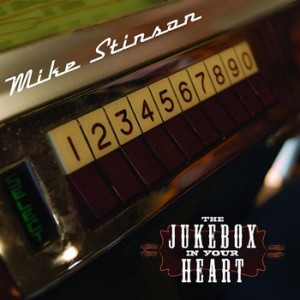
Mike Stinson
The Jukebox in Your Heart
Stag
Stone-cold classic honky-tonk records are few and far between these days, but that’s exactly what Mike Stinson serves up with The Jukebox in Your Heart, his third album and first since relocating from Southern California to Houston. Dwight Yoakam already recorded a killer cover of Stinson’s “Late Great Golden State” several years ago, but the more subdued version here is every bit as cool — and that’s just one of many standout tracks on this filler-free set that swings effortlessly from irresistible dancefloor magnets (“I Will Live to Drink Again” and the title track) to melancholic closing-time laments (“Slip My Mind,” “Angel of the Evening”).
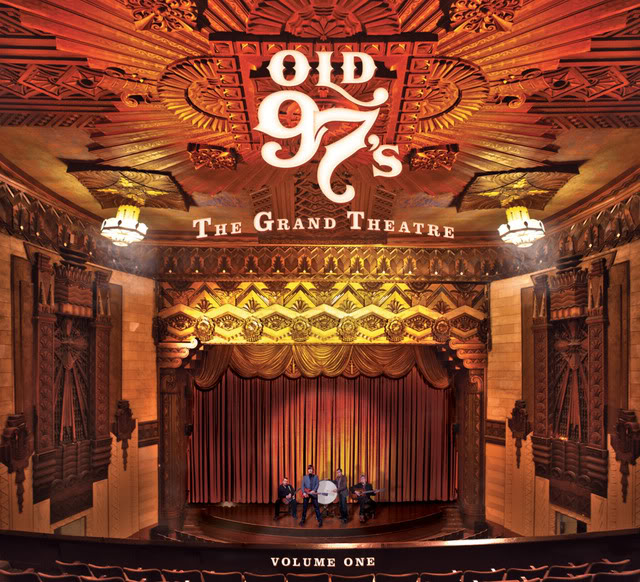
Old 97’s
The Grand Theatre, Volume One
New West
Volume Two of this so-called “double album” isn’t due until sometime in 2011, which is a bit of a shame — if only because it would have been a blast to witness this long-running, cracker-jack Dallas outfit go for broke with a real double album. But the half that’s here is still plenty fun, offering an even split between the band’s rowdy alt-country origins (“A State of Texas,”) and latter-day, Brit-flavored indie-pop (“The Grand Theatre.”). Frontman Rhett Miller, who has released three terrific solo albums in the past decade, still has plenty of charisma and energy to throw around here, but bassist Murry Hammond very nearly steals the show this time out with two of the 97’s best songs ever, “You Were Born to Be in Battle” and “You Smoke Too Much”
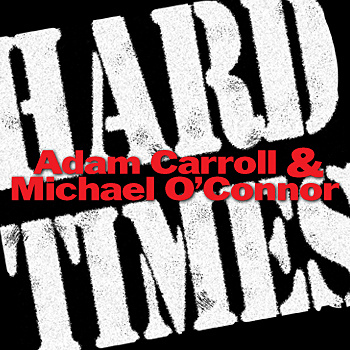
Adam Carroll & Michael O’Connor
Hard Times
www.adamcarroll.com
Honestly, what’s not to love about a kinda/sorta concept album about down-and-out, run-down, low-rent Gulf Coast losers, composed and performed by two alarmingly laid-back, good-humored, scruffy-voiced troubadours? Adam Carroll and Michael O’Connor, both longtime veterans of the independent music scene in their native Texas who have toured around the country and Europe together, take turns trading tunes with the laid-back charm of a song-swap in front of close friends. It’s a hoot, in every sense of the word, with the only complaint being that it all ends much too soon, breezing by in just under 35 minutes. The winning way Carroll and O’Connor chase every laugh-out-loud ode to hard luck and bar tabs “twice as long as Billy Gibbons’ beard” with bittersweet vignettes about sleepy little towns and wayward loved ones demands an encore.
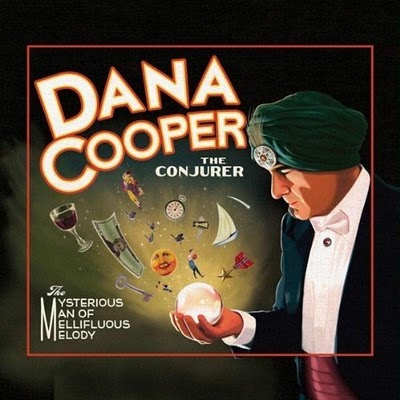
Dana Cooper
The Conjurer
www.danacoopermusic.com
There’s no sleight-of-hand deceit going on here — just the kind of honest craftsmanship that ensures songwriters like Nashville’s Dana Cooper will likely always occupy a niche of their own in the music world, safe from fickle fads and a constantly shifting mainstream. That’s not to say there’s no magic on The Conjurer, though, because there’s always an element of playful surprise in the way Cooper weaves such indelible pop hooks into even his most straight-forward songs, most notably on the attention-grabbing opener, “Enough” and its equally good chaser, “Leave a Little Mark.” Best of all, he makes it all seem easy. Neat trick, that.
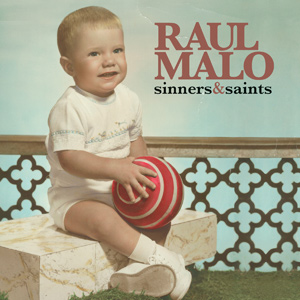
Raul Malo
Sinners & Saints
Fantasy
If Americana music has a Pavarotti, it’s Raul Malo. Sinners & Saints, his sixth solo album, finds the former Mavericks frontman flexing his formidable pipes around covers like Rodney Crowell’s “’Til I Gain Control Again” (well-meaning but over the top) and Los Lobos’ “Saint Behind the Glass” (head-spinningly exquisite); stealing a page (and organ player Augie Meyers) from the late Doug Sahm’s Tex-Mex playbook for the zesty originals “Superstar” and “San Antonio Baby”; and hijacking pretty much the entire melody of “Gentle on My Mind” for “Staying Here.” It’s all very brazen, really — like Malo knows full well how much he can get away with when throwing that voice around, and he’s going for broke. Sure, you can nitpick about subtlety, but when that voice asks, “Are you not entertained?” — don’t even try to deny it.
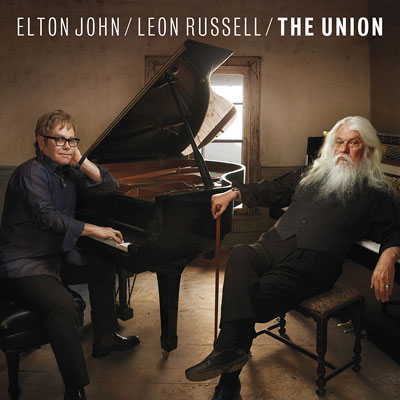
Elton John/Leon Russell
The Union
Decca
It’s a shame that this piano-man summit of England’s Elton John and Oklahoma’s Leon Russell sounds more fit for Carnegie Hall than a rollicking roadhouse; even a pinch more of whatever it was they were having when they knocked out the stand-out opener, “If It Wasn’t for Bad,” would have gone a long way. But if the rest of the album’s often stuffy, stately pace isn’t an automatic deal-breaker for you, there’s much to admire and even love about The Union. It’s a record you play on a quiet night with a nice fire going, with the patience to let beauties like “I Should Have Sent Roses” and “Gone to Shiloah” (a Civil War funeral march haunted by a scene-stealing Neil Young cameo) creep up on you in their own good time.
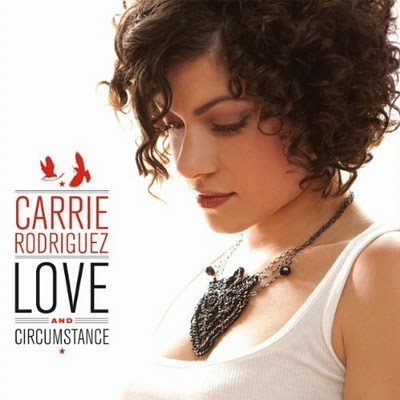
Carrie Rodriguez
Love and Circumstance
Ninth Street Opus
Three albums into her solo career may seem a bit soon for Texas-born singer-songwriter/fiddle player Carrie Rodriguez to be playing the covers-album card, but its hard to argue with the lovely results — or her taste in excellent material. Choice songs by Lucinda Williams (“Steal Your Love”), Richard Thompson (“Waltzing’s for Dreamers”) and Townes Van Zandt (“Rex’s Blues”) are among the highlights here, each kissed by Rodriguez’s sweet, languid drawl and handled with the loving care of an artist less interested in making the songs her own than in showcasing their natural beauty.
 Monday, February 27, 2012 at 11:17PM
Monday, February 27, 2012 at 11:17PM 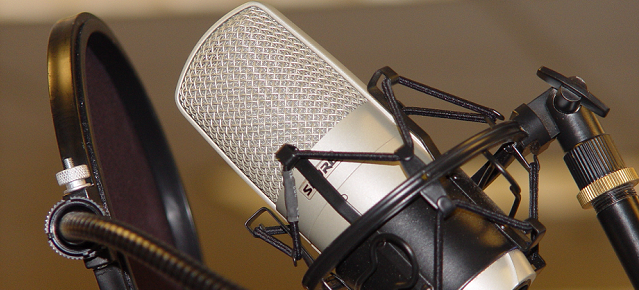
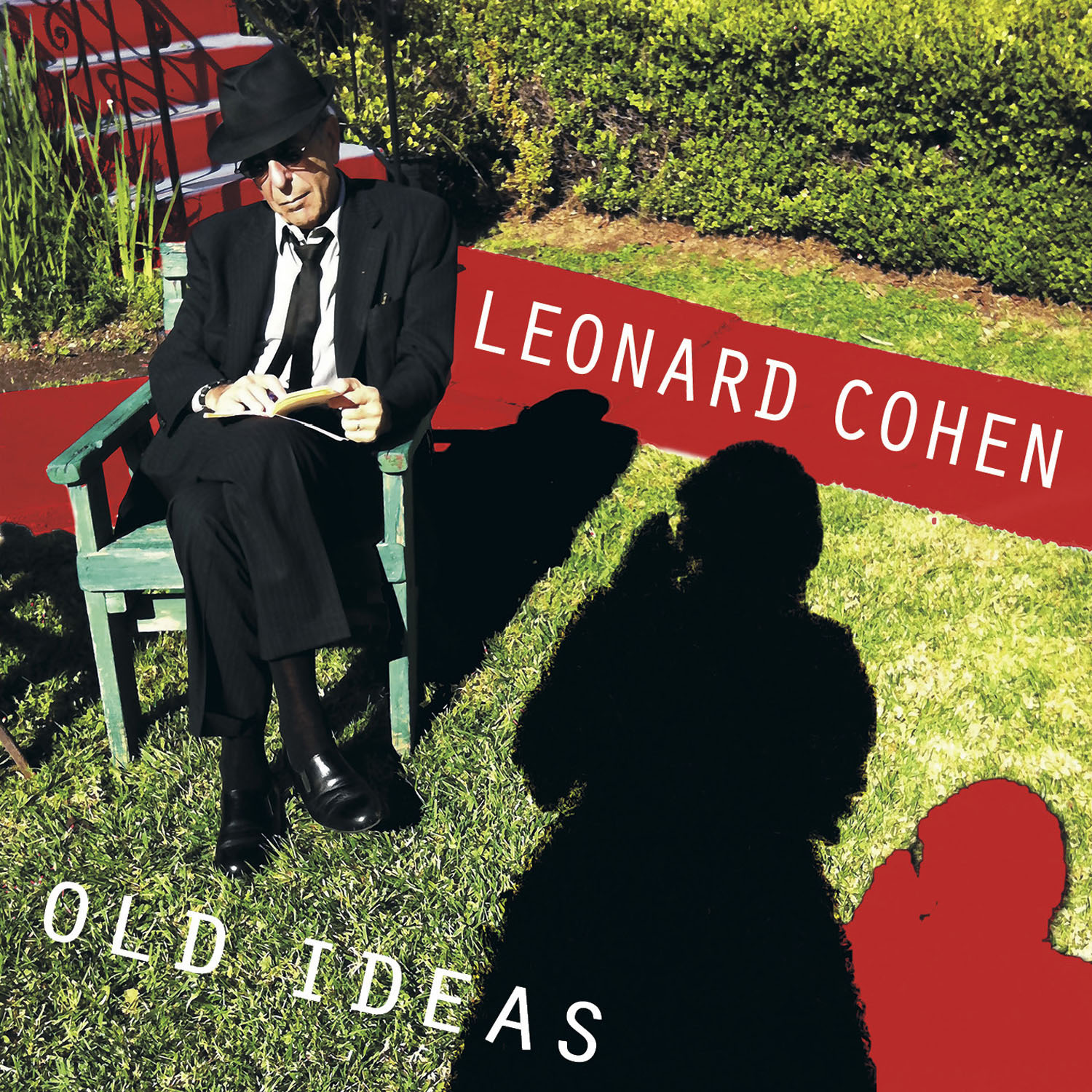
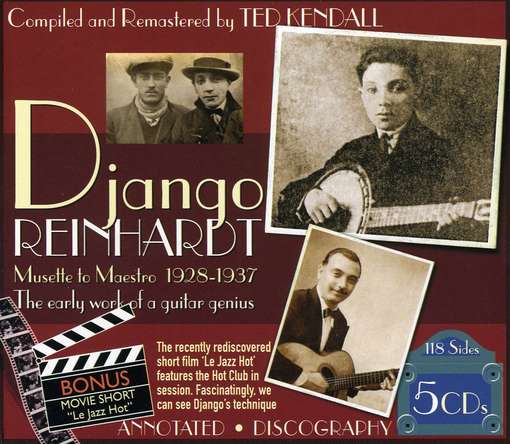
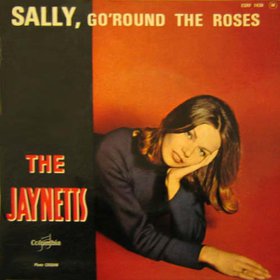


 [Your Name Here] | Comments Off |
[Your Name Here] | Comments Off | 